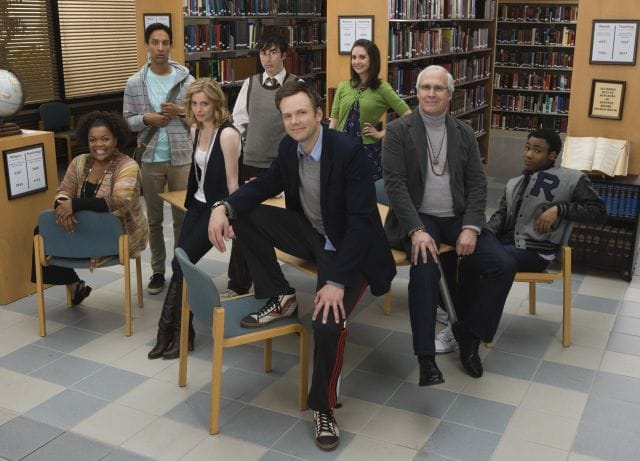Episodes: Why I resist fandom

I'm not a good fan.
This is, I think, on the face of things, probably not what most of you would expect. Maybe? I'm still most famous among some readers for writing really gushing, over the top Community reviews, which absolutely read like the ravings of a fan and were embraced by the fandom and all of that.
But even at the height of that show's powers, I never would have described myself as a "fan." I would have told you I liked, even loved it. But the part of fandom that places the property at the center of a great deal of thought and energy and recenters the universe around it to some degree -- I didn't have that. I was always optimistic and always wanted to assume that show (and many, many others) would impress me, but my positive feelings were always intensely focused, then immediately dissipated.
I guess what I'm saying is I find fandom a little creepy. I'm not saying I think you're creepy if you're a fan. I'm saying that I find the act of being a fan hard to stomach. I'm much better at being an anti-fan, at rolling my eyes over intense fandom, at finding it a little offputting, which feels WEIRD to me. It feels to me like it goes against a lot of who I am.
I'm thinking about this because Kobe Bryant has retired, and people are going nuts over it. And I've always been a pretty good Kobe anti-fan, to say nothing of the Lakers, whom I despise. (As a Los Angeleno, this is the kind of counterintuitive stand you don't want to take, especially when you WERE a Laker fan as a kid, precisely because everybody around you loved the Bulls. This is turning out to be a psychologically revealing newsletter.)
Because here's the thing: Kobe was accused of rape in 2003, and the accusation was the sort of thing that's hard to shake off, even if you only know a little bit about it. But lots and lots and lots of people did shake it off, as people did with Peyton Manning, or Ben Roethlisberger, or [insert famous athlete/celebrity accused of awful things here]. I'm not saying you can't appreciate, say, Bryant's performance on the court while still thinking he's a loathsome human being (or some version of that). You have to be his biggest fan, or not his biggest fan. And being a big fan means getting rid of all the unsavory stuff.
(I'm talking about this in relation to sports, because I'm always interested in interrogating why I'm really good at enjoying watching sports while never becoming emotionally invested in it beyond the level of "that was a great play," especially as so many folks I know are deeply, deeply involved. But you can obviously apply any or all of the above to film or TV or music, or whatever you want.)
In general, we don't want our heroes to be complicated. I once heard a bit of gossip about a writing idol of mine that cut directly against everything I liked about said idol. It was nothing illegal or even necessarily immoral or unethical, but it did run counter to what I believed to be true. And now, even though I suspect that gossip was true, I don't think about it, because I love that idol's work so much.
Which is to say that I do understand fandom, even if I find it a little hard to parse (especially in sports, where its intensity is more pronounced). And I think what I understand about it is also why I resist it so much.
Fandom and fundamentalism are on the same continuum, I think. You can even think about how, say, there's nothing like a fundamentalist who's left the church they were raised in, then compare it to somebody who's finally given up on a TV show they used to love and is sort of embittered about it. The emotions aren't exactly the same, but they're in the same neighborhood.
And if you've read any of those Community reviews, you know that I'm a lapsed fundamentalist Christian who inevitably freaks out a little bit at anything that reminds me of the unquestioning belief I was raised with.
I think somewhere along the line I wanted to force myself to be OK with complication, with the idea that people are many things and not just the one I wanted them to be. I'm not trying to say this is a better way to live; it's just an origin myth, I guess, something that will hopefully explain me to you somewhat. Giving myself over to a movement scares me, and that makes me not very much fun in large public settings (I'm the worst person to attend a concert with), but it's also probably why I'll never be the fan I think I should be.
Is that good? Bad? It's probably both. Most things are. I like the world better that way, even if it sometimes makes me seem a little bit like an asshole.
--
Episodes is published at least three times per week, and more if I feel like it. It is mostly about television, except when it's not. Suggest topics for future installments via email or on Twitter. Read more of my work at Vox Dot Com.




